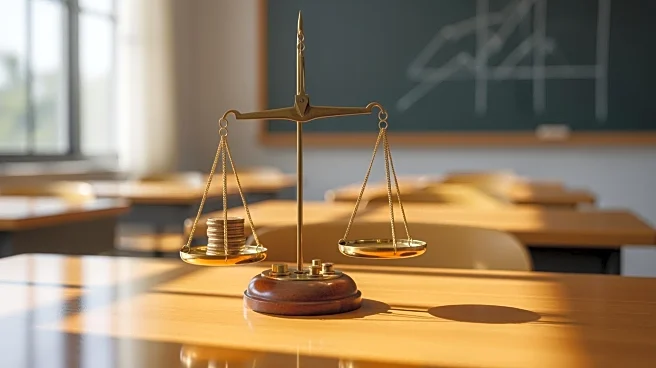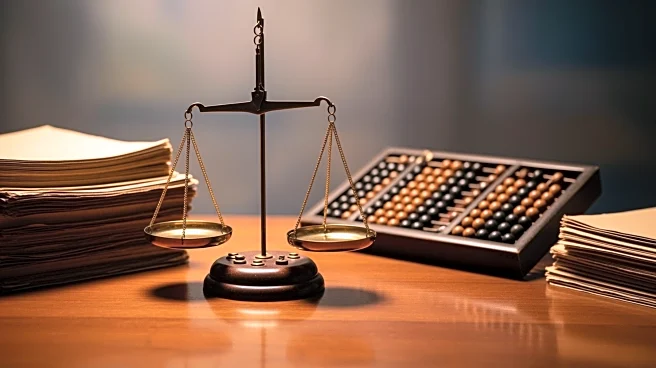What's Happening?
British-Egyptian activist Alaa Abdel Fattah has been released from prison in Egypt after receiving a pardon from President Abdul Fattah al-Sisi. Abdel Fattah, a prominent political prisoner, was arrested in 2019 during a crackdown on dissent and sentenced to five years for 'spreading false news.' His release follows a petition from Egypt's National Council for Human Rights, which highlighted the humanitarian and health conditions faced by his family. Abdel Fattah's release was celebrated by his family, including his mother and sister, who have been vocal advocates for his freedom. The UK Foreign Secretary Yvette Cooper expressed gratitude for the pardon, hoping it signals a shift towards releasing other political prisoners in Egypt.
Why It's Important?
The release of Alaa Abdel Fattah is significant as it highlights ongoing human rights issues in Egypt, where President Sisi's government has been criticized for its crackdown on dissent. Abdel Fattah's case has drawn international attention, with human rights groups and foreign governments, including the UK, advocating for his release. His pardon may indicate a potential shift in Egypt's approach to political prisoners, which could impact the country's international relations and human rights record. The decision also underscores the influence of international pressure and advocacy in addressing human rights violations.
What's Next?
Following his release, there is anticipation regarding whether Abdel Fattah will be allowed to leave Egypt to reunite with his son in the UK. The broader implications of his pardon could lead to further discussions on the status of other political prisoners in Egypt. Human rights organizations and international stakeholders may continue to monitor Egypt's actions closely, advocating for more reforms and the release of other detainees. The Egyptian government's response to these pressures will be crucial in shaping its future human rights policies.
Beyond the Headlines
Alaa Abdel Fattah's release not only represents a personal victory for his family but also serves as a symbol of hope for other political prisoners in Egypt. The case highlights the power of sustained advocacy and international solidarity in challenging human rights abuses. It also raises questions about the balance between national security and individual freedoms in Egypt, potentially influencing future legal and political reforms.








